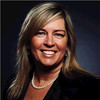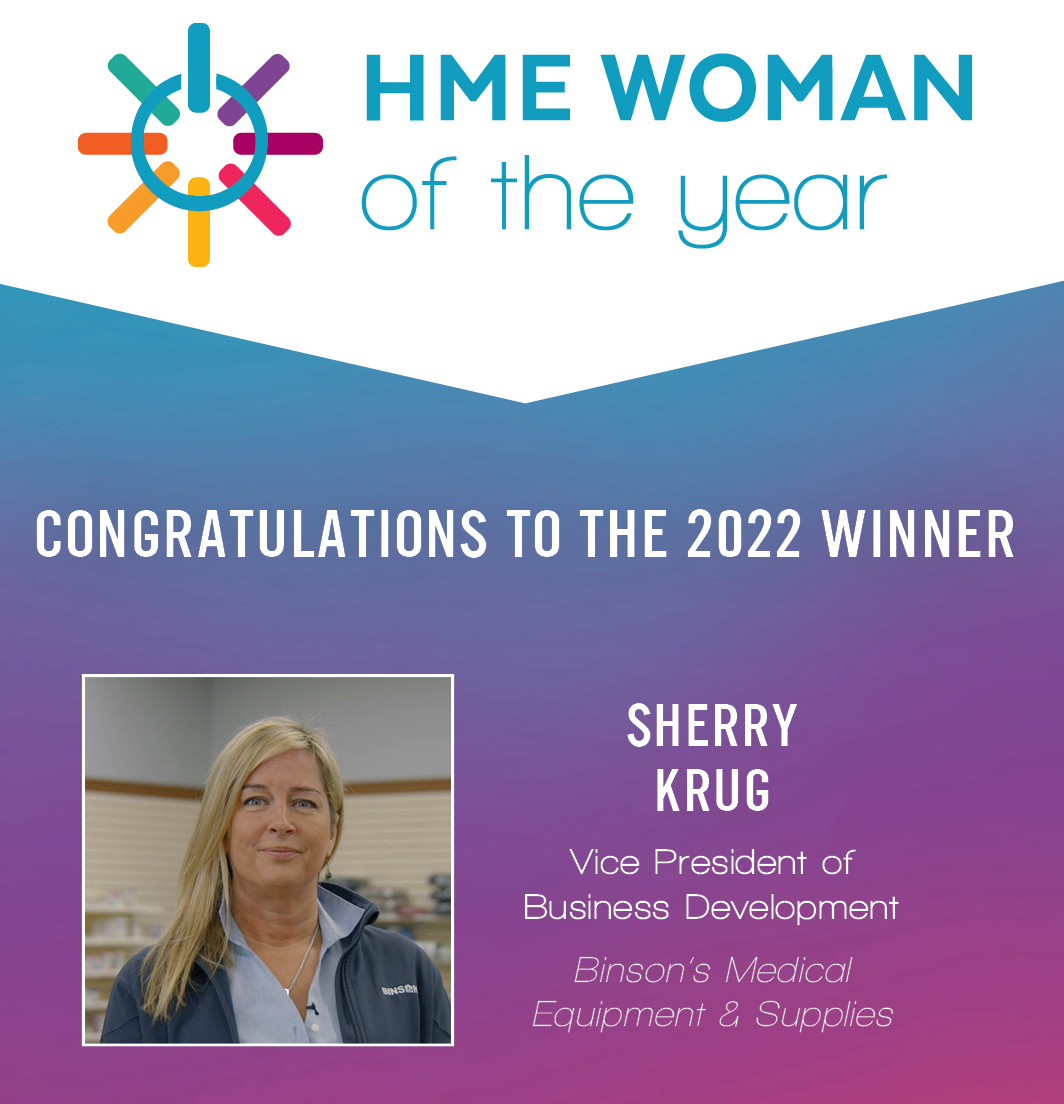CENTERLINE, MI – Sherry Krug began as an HME entrepreneur back in 2009, learning valuable lessons while honing her considerable leadership skills. More than a dozen years later she won VGM’s HME Woman Of The Year Award as vice president of Binson’s Medical Equipment & Sales, Centerline, Mich.
 Krug now serves as a relational leader, overseeing operational functions for all the company’s locations. Medtrade Monday sat down with Krug to learn how she handles the toughest HME business challenges and to get her sense of what the future may hold for the industry.
Krug now serves as a relational leader, overseeing operational functions for all the company’s locations. Medtrade Monday sat down with Krug to learn how she handles the toughest HME business challenges and to get her sense of what the future may hold for the industry.
Medtrade Monday: You began your HME career right around the time that the competitive bidding program was being implemented. How did that factor into your thinking?
Krug: Competitive bidding was not in my mind because I knew little about DME. It was baptism by fire. It was an incredible amount of information and I actually did my first bid during the first year I started the DME.
Medtrade Monday: Considering the HME climate in 2023, what advice would you give to a 20-something who might be considering a career in this industry?
Krug: With DME there can be so many challenges, but the bright side is that it’s a great way to break in to healthcare. In a lot of healthcare worlds, there are specific degrees that you must have. In DME, you can really break in without experience or certifications.
For young people, it really gives them the ability to climb a ladder and shine. I would say, ‘Don’t be afraid to start at the bottom.’ I feel like it’s an industry that if you work hard and you show your adaptability and drive, you can climb the ladder quickly and maybe easier than you could if you were in another healthcare field.
Medtrade Monday: What is the biggest concern/challenge for HME providers?
Krug: You have to please several customers—patients, referral sources, health plans, and employees. With patients, you are educating them and showing them how to use equipment properly within the home. Every time you do that, you must work with multiple sources and make sure everyone is on the same page in the continuum of care. It’s quite complicated to make all of that go smoothly.
There are so many insurances now and the authorization guidelines might be different for all of them. Your customer service team members need to understand those and deal with that. There are so many layers and a lot of customers so you are trying to make sure they are all receiving good quality service. There are a lot of moving parts.
 Medtrade Monday: How do you make all of that possible?
Medtrade Monday: How do you make all of that possible?
Krug: Communication to referral sources is critical. Communication to patients is critical. Communication to the customer service team is critical. HME providers should find out; What does your communication look like? Are there better ways to do it? Could we utilize texting instead of calling? You have faxes. We use Parachute [text platform] now.
We are always trying to determine; How do we make all these pieces of communication function well? How can we use the up-and-coming technology to make that a better experience and make it easier for the referral source to put in the order and let them know that we’ve gotten it? How can we contact the patient immediately?
Communication is critical and I look for feedback on a weekly basis to ask them; What worked? What didn’t work? What do we have to fix? How do we use the sales team to make sure that communication from customer service to the referral source happened immediately? There are lots of layers.
Medtrade Monday: What is your level of optimism about the industry these days?
Krug: I’m always optimistic and I look at the bright side. My level of optimism is extremely high. I think we really legitimized our place in the continuum of care during COVID. We were the number one oxygen supplier in south east Michigan and we worked with a lot of our hospital systems to help them free up hospital beds, getting the oxygen and having it in the hospital and ready to go.
With the aging population and all of our health care moving toward an at-home model, and trying to keep them at home longer, it works to our strengths. You can’t do that without equipment. I have had personal experiences with caring for dying family members at home with hospice. DME is a critical component to making it all work. I’m very optimistic that we will continue to solidify our place in the health care continuum.
Medtrade Monday: Do you think the trend toward fewer providers will change?
Krug: The Amazons of the world and some of the national chains are trying to provide DME. However, patients need help. They need someone who understands how it all works. Patients need somebody helping them set up equipment at home—even making sure that walkers are adjusted properly. I’m hopeful that more DMEs will come back. It’s difficult because our service portion is not necessarily recognized within reimbursement and it’s hard to make up that difference.
Medtrade Monday: How well do payers understand the value of HME?
Krug: Some people think DME is just a product that you can offer online. We are a service. We sell products, but DME companies are nothing without the service we provide. I don’t think we are fairly reimbursed for that service, but the patient education part of it keeps people home and keeps them from readmitting to the hospital. It’s better for the overall health care system. I hope people recognize the difference between just receiving a product vs. the support and service and 24/7 on-call support. We have a lot of patients for whom we may be the only person they see or talk to for an entire week or month.
Medtrade Monday: What do you think of Medtrade moving to Dallas and going to one show per year?
Krug: I’m so excited about Dallas. I have been to Medtrade many times in Atlanta, but this move is so cool. I love Texas and I’m very much looking forward to Medtrade in late March. I like one show per year. I think it can get watered down at times with two shows.
Medtrade Monday: What do you like most about Medtrade?
Krug: I always get something out of Medtrade and the connections I’ve made there have been critical to my success. The educational sessions have been critical to my success. The session leaders and VGM experts are wonderful. The Medicare personnel there are helpful. The competitive bidding classes were incredible.
Medtrade Monday: How valuable is face-to-face interaction at trade shows such as Medtrade?
Krug: I’m a people person and I build relationships in person. There is no comparison. I want that human connection and having those conversations on the side. Building relationships happens in person—not online. I want to touch the products, see them, and ask questions.

